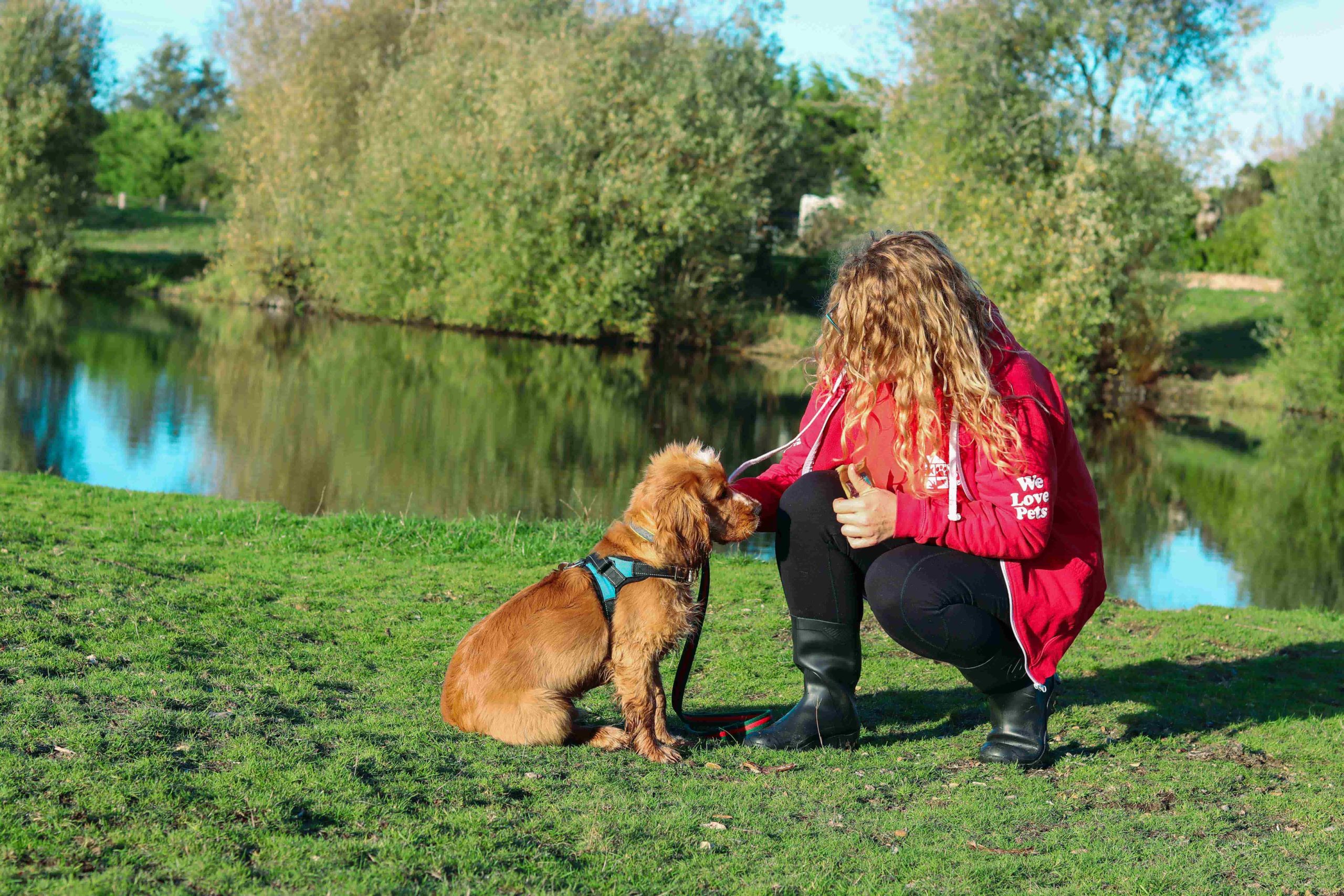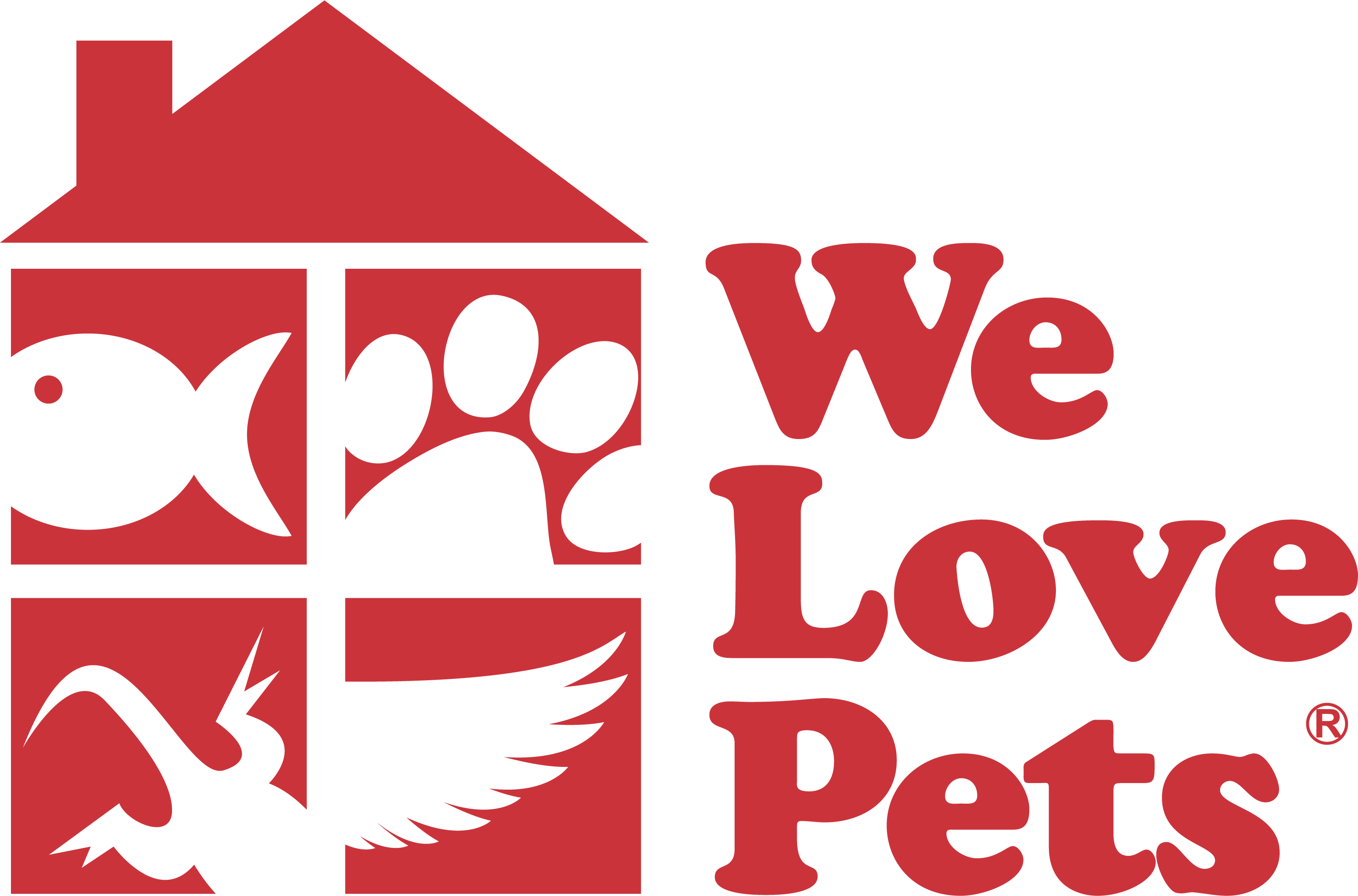We don’t pack walk

What is a pack walk?
Pack walking is when a large group of dogs are walked together at the same time. Any group larger than four is considered a pack. These dogs are usually picked up from different households one by one, put in a van and either walked together on leads or let off the lead in a park. The dogs are often controlled by a single dog walker. What’s more, the dog walker doesn’t technically have to have any training or credentials to look after them.
“Just because you come home tired, doesn’t mean it’s been a good day”
Why is pack walking bad?
Small groups of no more than four dogs that get along together are fine, but pack walking is not. It’s not good for the dogs, the dog walkers and the general public who run into them.
Every dog owner knows how difficult it is to keep an eye on their own dog, so you can imagine what it might be like trying to control five or more! Not only do you have busy roads, livestock, other dogs, cyclists, people and children to contend with, but you need to be paying attention to what’s happening within the pack too.
Hazards can come up in an instant and the more dogs there are, the harder it is to keep them all safe from dangers, from the environment, or each other. And while you’re tending to one emergency, no doubt another will present itself with endless other dogs running around in the background. Before you know it, the walk has descended into total chaos.
If a dog walker weighing say 11 stone is in charge of six large dogs weighing 8 stone each, there’s going to be a serious physical struggle in keeping them under control. The same goes for any dog walker of any size having to control a large number of dogs, even little ones. These physical burdens shouldn’t be placed on walkers which undermines their confidence too.
The bigger the group, the more likely it is for fights to break out, even between dogs who wouldn’t normally show aggression. In a pack, it is very common for smaller, more timid dogs to get picked on so that dominance can be established. It might not seem that way because it looks like these dogs are running around having fun, but in reality they are trying to avoid the alphas in the pack who want to have a pop at them.
Dogs mixing in a large pack can run a real risk of transmitting illness and disease from one to another, no matter how careful the owners or walkers are. The bigger the group of dogs, the harder diseases are to trace and the greater the risk of infection to dogs in the wider community too.
Book a dog walker who doesn't pack walk
Classroom benefits
Walk this way
The We Love Pets dog walk explained…
We haven’t met a dog yet who doesn’t like going for walks. Not only are walks an excellent way of keeping a dog fit and healthy, but they also burn off all that pent-up energy and gives dogs the new and stimulating experiences that they need.
Dogs usually love to socialise with other dogs – just see how quickly they make friends with others they encounter when they are out! This is why we often walk dogs in pairs, three’s or fours (from a maximum of three households) as these provide three of the important things that a dog needs; play, socialisation and enrichment.
Friends who walk well together
Dogs, just like their human owners, usually like to make friends and we will quickly notice when a dog likes the company of another dog on a regular walk. If they seem fretful or hang back, this probably means they do not like the other dog’s company so we find them another walking companion. We always make sure dogs are well matched to become the perfect play partners.
Overcoming social awkwardness
Some dogs are very timid and stay by their owner’s side when walking alone. This could be because they had a bad experience previously or didn’t get the chance to learn the social skills needed to interact with other dogs when they were a puppy. In either case, we can help these shy guys build confidence to explore new environments which is important for their mental stimulation and wellbeing. We will gradually introduce them to other dogs that suit their temperament, always with the owner’s consent, so that they can join in discovering new and exciting places and smells.
An experienced, well-trained eye on things
Our dog walkers are pet first aid trained as a minimum and many are City & Guilds certified. All are background checked and personally vetted as genuine animal lovers you can trust. As well as being there to facilitate fun playtimes, our dog walkers keep a trained eye on all dogs, especially those who are safe off lead or those who could do with a refresher in doggy social etiquette. Experience and training counts for everything in a dog walker who lets dogs get everything they need out of their walk whilst keeping them safe.
“I’ve seen too many tragic dog injuries”
“In some respects, we have bred dogs to be perpetual puppies. When in the company of other dogs, their natural inclination is to act like puppies, with playful games of chase or wrestling with that rough and tumble frenzy similar to what we see in human children of preschool age. This can produce bonds of friendship between dogs and can generalize to become a positive and friendly attitude toward all other canines. However, in some cases, such forms of rough play can produce antagonistic relationships and attitudes. This is not uncommon when dogs have been allowed to run in an off-leash park area or have been placed in a doggie daycare where they interact with dogs of mixed sizes and temperaments in a generally unsupervised way. Under such circumstances, dogs may actually develop a general hostility or fear toward all unfamiliar dogs rather than acquiring canine friends.”
An excerpt from Dr Stanley Coren, PhD., DSc., FRSC in an article for Modern Dog magazine.

Our Ethical Accreditation Award!
What does this award mean?
We Love Pets prides itself on being a pet services provider that seeks to raise the bar of animal welfare in the pet care industry. Our model of pet care focuses on putting pets first and giving them loving, personal and professional care.
We Love Pets’ commitment to animal welfare is reflected in our ‘No Pack Walking’ Policy.
We also has an Environmental Policy and a Recycling Policy, which demonstrate the company’s sustainability efforts. This includes focusing on recycling and waste reduction, energy and water efficiency, alongside introducing measures to reduce carbon emissions.
Find out more here – The Most Ethical Pet Care Company
“I feel the point to bear in mind with pack-walking is that dogs cannot be expected to get along 100% of the time. Just like humans, and when excitement levels run high what would normally be a small disagreement between two dogs can turn into a multi-dog fight very quickly.
Recently an older Jack Russell came into the clinic who lives on a farm with a large number of dogs and is pack walked every day. But that day, they fell out with another dog and a fight broke out. Three surgeries, multiple stitches and months of recovery later, she has now been rehomed because she doesn’t tolerate any dogs at all anymore. The owner was also bitten trying to get her out of the dog pile and no longer walks the dogs on their own.”
Chelsey Wheeler
RVN, RVT, BSc. and We Love Pets go to Vet Nurse
“A lot of behaviour problems stem from being forced to tolerate a situation dogs aren’t comfortable with or being allowed to get away with inappropriate behaviour because it’s not being monitored properly.
“Walking dogs in pairs or threes means we can match dogs who are similar ages, enjoy the same things and can get the most out of their walks. They also allow us to add more enrichment and monitor interactions so we can make sure they are really enjoying themselves.”
